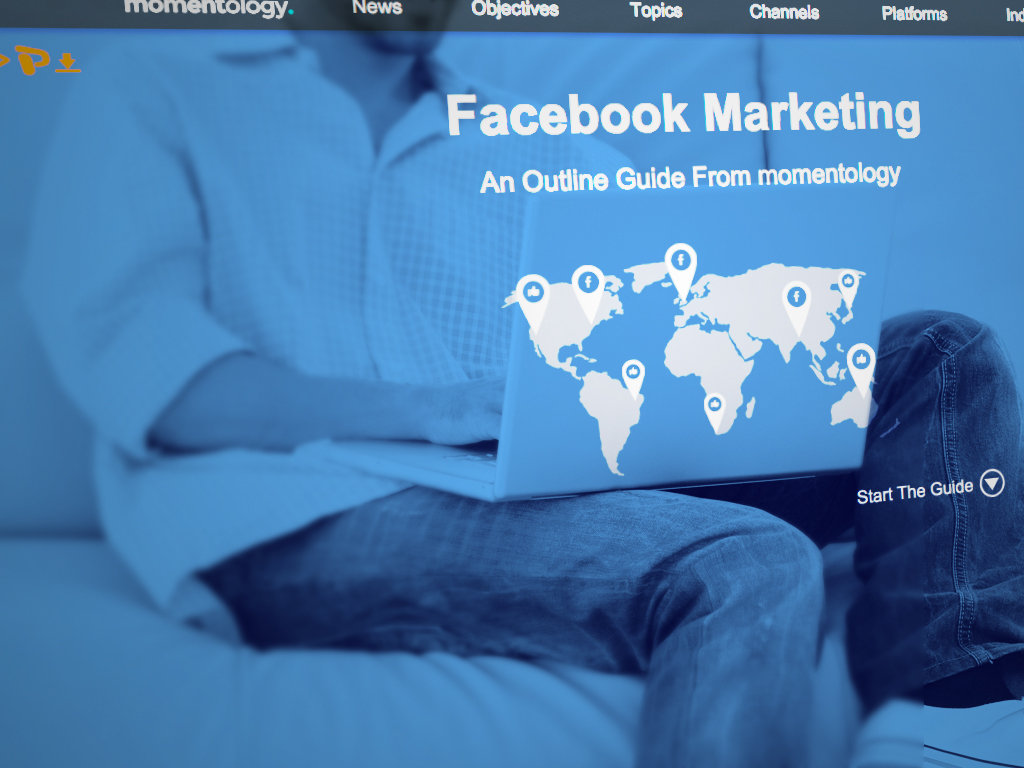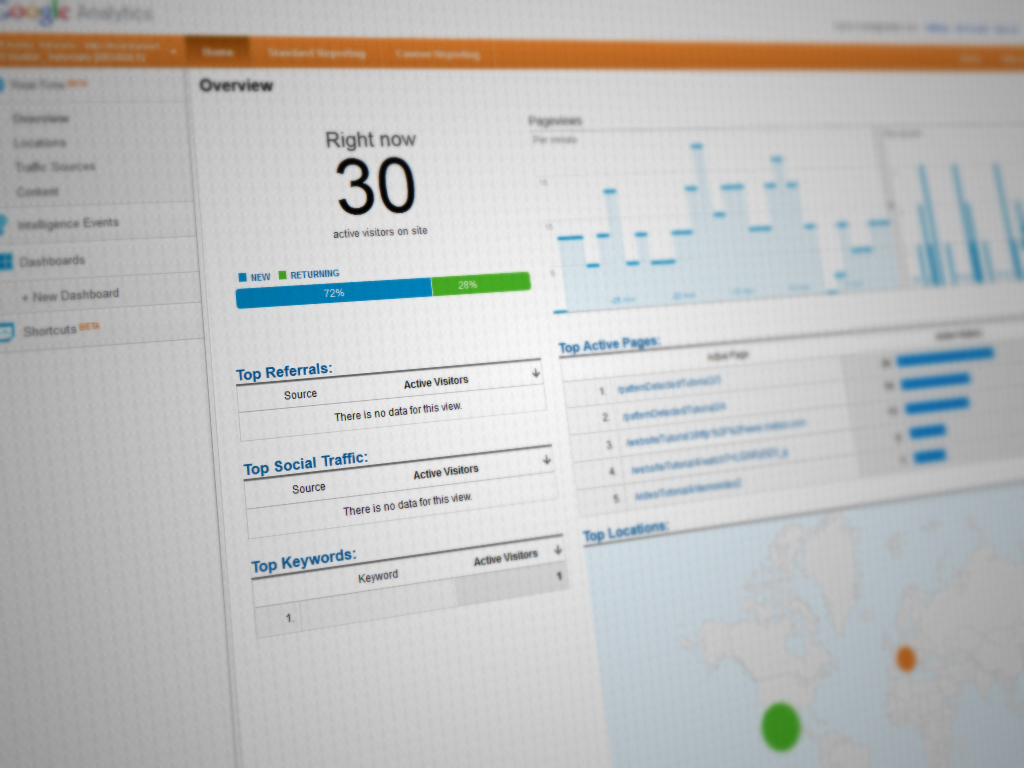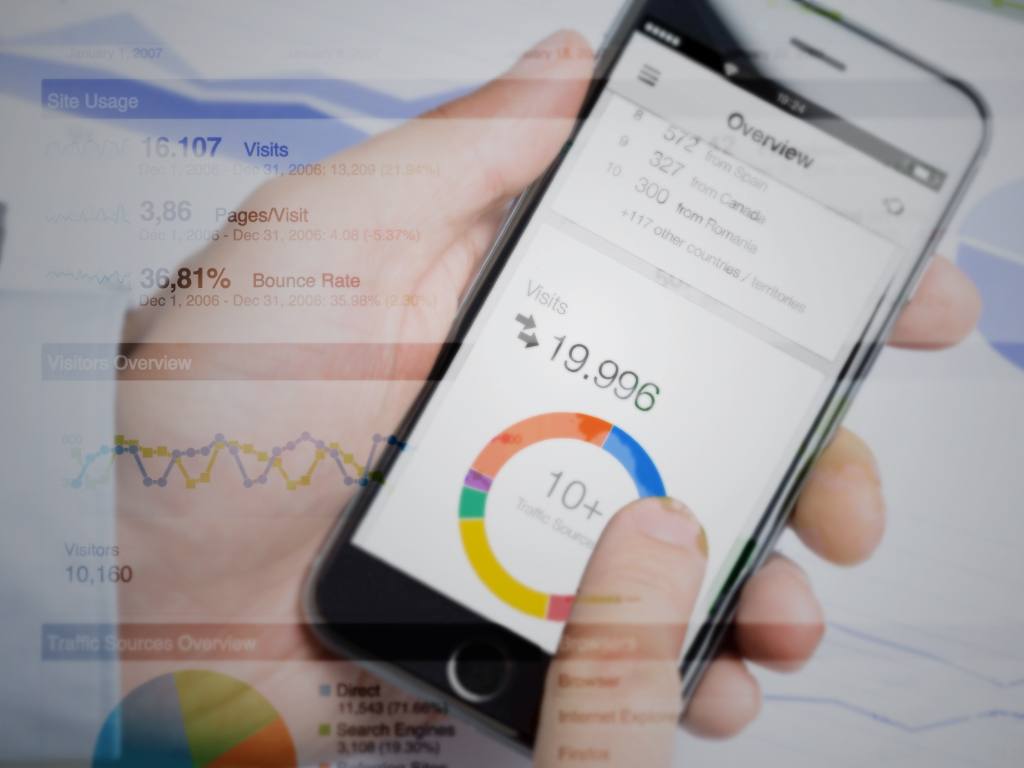With more than 890 million people using Facebook on a daily basis, its importance to brands and marketers is obvious. Getting hundreds of Likes on a company photo can help develop brand recognition and build a fan base. However, as the social network has matured, so have its accompanying promotional strategies.
It’s no longer enough to get users to scroll through photos on Facebook; at many companies, success on the social media platform is determined by your ability to get them to click through to your website and convert to customers. Using Google Analytics (GA) to understand the traffic from Facebook can give you the insight you need to develop a strategy to accomplish this goal.
Understanding Your Facebook Fans
It’s Marketing 101 – you need to understand your audience in order to speak to them through any platform, especially Facebook. The social network offers a unique opportunity to start casual conversations, gain feedback, and build a relationship with your target audience. When you’re armed with more information on who these people are, then you can create content more targeted to their interests and increase the likelihood that they’ll want to engage with you.
The Google Analytics’ Demographics Overview report can provide you with more in-depth analysis of who is reaching your website from Facebook. As fans click through to your website, Google Analytics tracks information on their age, income, interests and more, which can ultimately help you develop appropriate outreach strategies for the social network.

For example, a pharmaceutical interest group seeking to spread a message about proper prescription disposal used Facebook as a significant part of its strategy. Through both organic and paid posts, this group wanted to specifically target an audience of middle-aged women. The group believed that this demographic would best receive and act on its message. By filtering the demographics report in Google Analytics to show people coming from Facebook, they were able to confirm that they were indeed reaching a primarily female audience, with the largest percentage coming from the age ranges of 35–44 and 45–54.
Conversions Through Facebook
Our ultimate goal as marketers is to convert customers and increase sales. By utilizing the data from Google Analytics we can gain a better understanding of who from Facebook is visiting the website, as well as who is making a purchase, signing up for the newsletter, or taking some other action within the sales cycle.

Facebook’s desktop ads saw a 1.1 percent conversion in 2014’s fourth quarter, while its mobile ads converted at 0.3 percent, according to Marin Software. These conversion rates are significantly lower than paid search, but using insight from Google Analytics can provide an accurate depiction of what tactics are working on Facebook and how to improve conversion.
For example, an independent living community targeting higher income retirees utilized Facebook ads to reach multiple audiences: adult children of potential residents, as well as the potential residents themselves. By setting up ad URLs to be tracked in Google Analytics, the living community could compare the performance of audiences, ad copy, and images based on activity after these people hit the site. Google Analytics enabled them to track engagement, as well as lead generation, and thereby refine campaigns to use the most effective images and ad copy, as well as determining the demographics of the target audience to set up for the campaigns.
Revenue From Facebook Visitors
Understanding the conversion rate from Facebook is the first step, but taking it further to learn the direct dollar amounts that the social network contributes to your brand’s revenue will define ROI.
Eighty-four percent of marketers rely on Facebook more than any other social media platform in their campaigns, according to an AdAge survey. This reliance can be justified by using the Goals feature within Google Analytics to quantify conversions. For an in-depth look at how to set up this option, read through this blog post.

Proving ROI was incredibly important to a best-selling author who was establishing an online brand promoting resources for healthy living. After building an immense Facebook following by promoting free resources, her team was able to see Facebook contribute directly to revenue by strategically promoting paid resources to the audience, cultivated through earlier promotions. While the author was pleased to connect with her fans on Facebook, it was Goal tracking in Google Analytics that allowed her marketing team to attribute a specific dollar value to Facebook campaigns.
Seeing data on what posts, on what days worked most effectively to drive purchases encouraged her team to streamline their Facebook strategy to continue building revenue growth.
Conclusion
We know that Facebook is the largest social network, and that many brands rely on it to connect with their target audience. But with insight gained from Google Analytics, marketers can improve their strategies and prove the social network’s overall worth to their brand.



